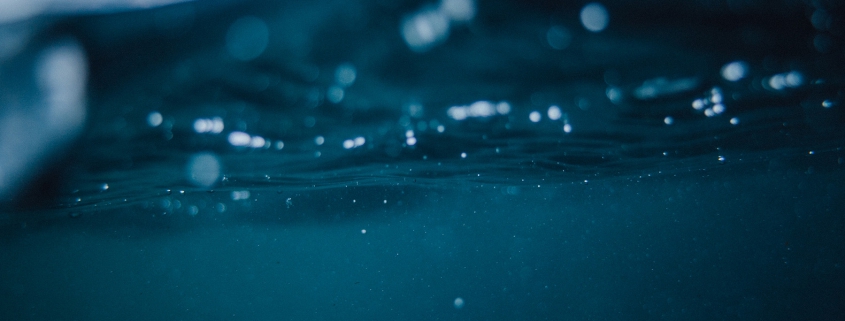Celebrating World Oceans Day in the Indian Ocean – One Ten East log
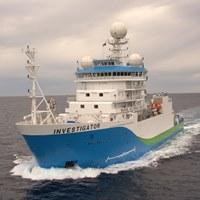
One Ten East Logs from the IIOE-2 voyage aboard RV Investigator will be posted on the WAMSI website during the month long voyage.
Log from One Ten East
The RV Investigator is currently undertaking oceanographic research along the 110°E meridian off Western Australia as part of the second International Indian Ocean Expedition. The voyage is led by Professor Lynnath Beckley of Murdoch University and the research is supported by a grant of sea time on RV Investigator from the CSIRO Marine National Facility.
|
Date: June 09, 2019 |
Time: 1200 AWST |
|
Latitude: 19°S |
Longitude: 111°E |
|
Wind direction: S |
Wind speed: 24 knots |
|
Swell direction: SW 2-3 m |
Depth: 2278 m |
|
Air temperature: 23°C |
Sea temperature: 26°C |
|
Notes: We are doing the second Trixaus section as we travel towards the North West Cape of Australia. |
|
Celebrating World Oceans Day in the Indian Ocean
By Dr Jessica Benthuysen and Micheline Jenner AM
June 8th is World Oceans Day. First celebrated in 1992, World Oceans Day was officially recognized by the United Nations in 2008. Globally it is important to celebrate the vital role the oceans play, particularly in the light of current threats. Without oceans, life would not exist on our blue planet.
On RV Investigator, an international team of marine scientists comprising equal numbers of male and females is working day and night to understand the dynamics of the south-east Indian Ocean. This voyage is Australia’s contribution to the second International Indian Ocean Expedition (IIOE-2). The expedition is co-sponsored by the UNESCO Intergovernmental Oceanographic Commission (IOC), Scientific Committee on Oceanic Research (SCOR) and the Indian Ocean regional alliance of the Global Ocean Observing System (IOGOOS).
Over the past 26 days we have been at sea repeating a line of oceanographic stations along the 110° East meridian across 30 degrees of latitude, that was last examined by HMAS Diamantina in 1963 during the first IIOE. We have measured chemical and physical properties and collected water samples down to 5,800m depth, which we will compare to data collected during the first expedition. Across every data stream, we have used the latest technologies to investigate organisms from microbes to mesopelagic fishes and megafauna, such as pygmy blue and humpback whales. In addition, we have also focused on bio-optics to ground-truth satellite observations of ocean colour in this oligotrophic part of the blue planet.
We are now en route towards North West Cape adjacent to Ningaloo Reef, a UNESCO World Heritage Site. We are towing a Triaxus, which is an undulating platform with an array of instrumentation to investigate the Eastern Gyral Current, which feeds into the Leeuwin Current.
We celebrated World Oceans Day in anticipation of our team’s dedicated efforts over the last month making a lasting contribution to the understanding of the dynamics of this relatively small, but vitally important ocean, upon which more than a billion people depend.
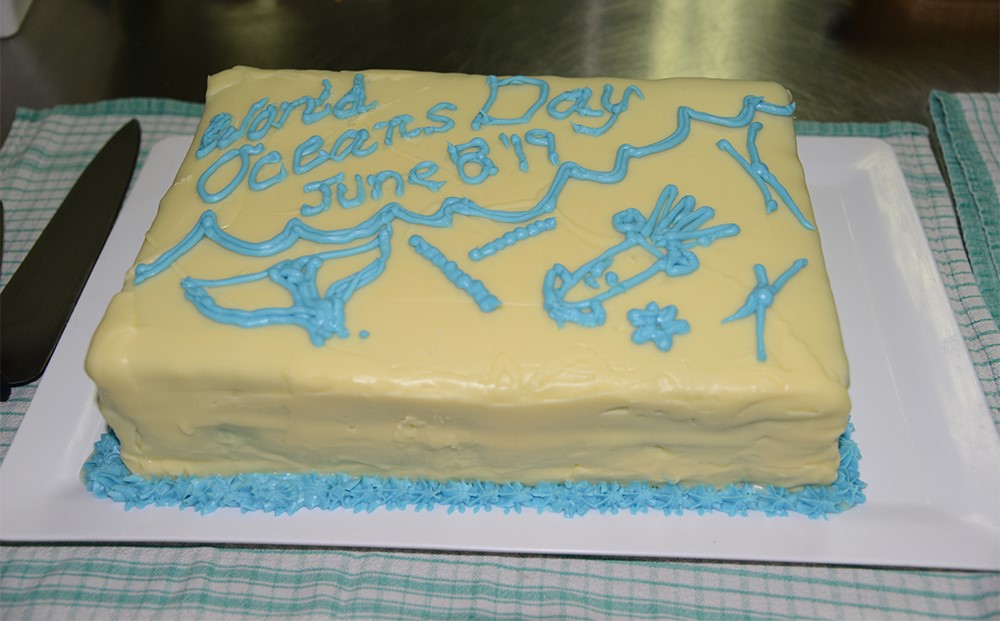 |
| After celebrating World Oceans Day with a sumptuous lunch in the marine-themed decorated Mess aboard RV Investigator, dessert comprised a beautiful and delicious sponge cake, decorated with a variety of marine biota. Photo: Micheline Jenner AM. |
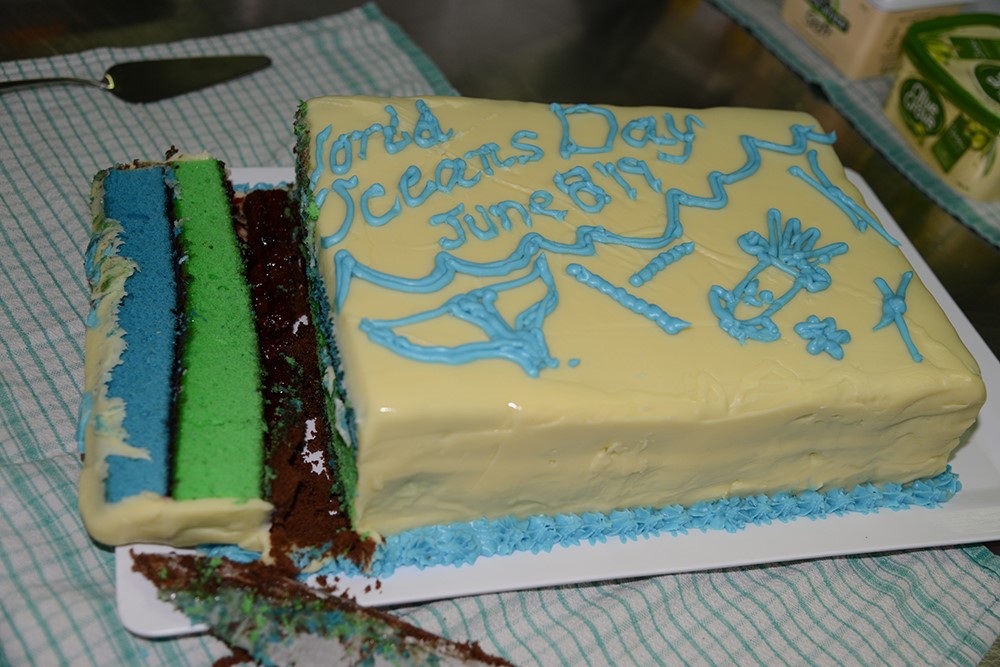 |
|
Cutting the World Oceans Day cake revealed the layers of the sea! The three coloured layers showed the optically clear shallow blue waters, the green, subsurface deep chlorophyll maximum zone and then the deep, dark waters of the chocolate layer, complete with flashes of bioluminescence from cake decorating silver balls! Coincidently, the green and blue are also the colours of the RV Investigator! Photo: Micheline Jenner AM. |
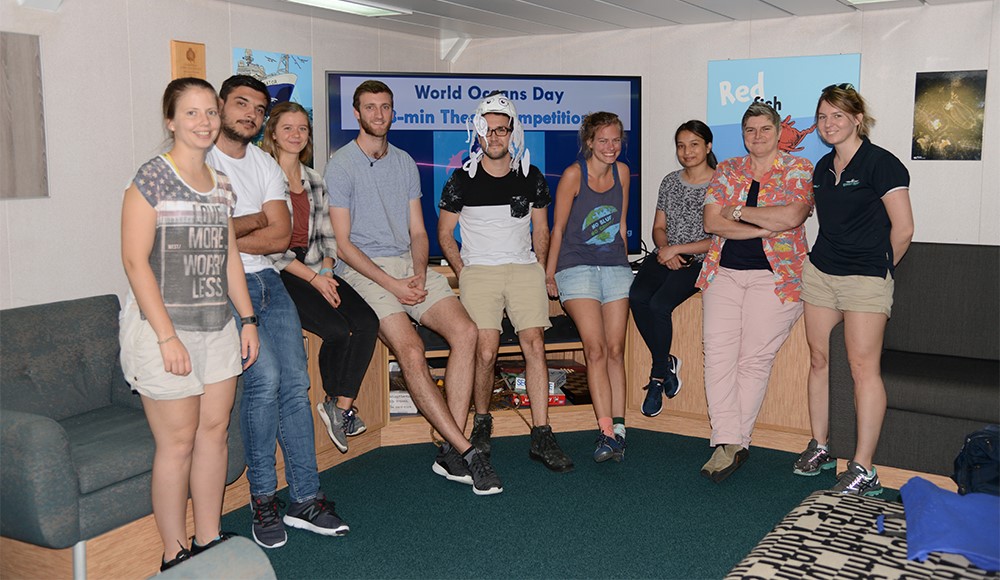 |
|
After lunch, most of the students on board, who are assisting the Principal Investigators on this voyage, participated in a World Oceans Day “3-Min Thesis Competition”. From left to right, Aimee van der Reis, Maxime Marin, Camille Grimaldi, Daniel Cohen, Earl Duran, Cora Horstmann, Pramita Ranjit, Peta Vine and Danielle Hodgkinson. Photo: Micheline Jenner AM. |
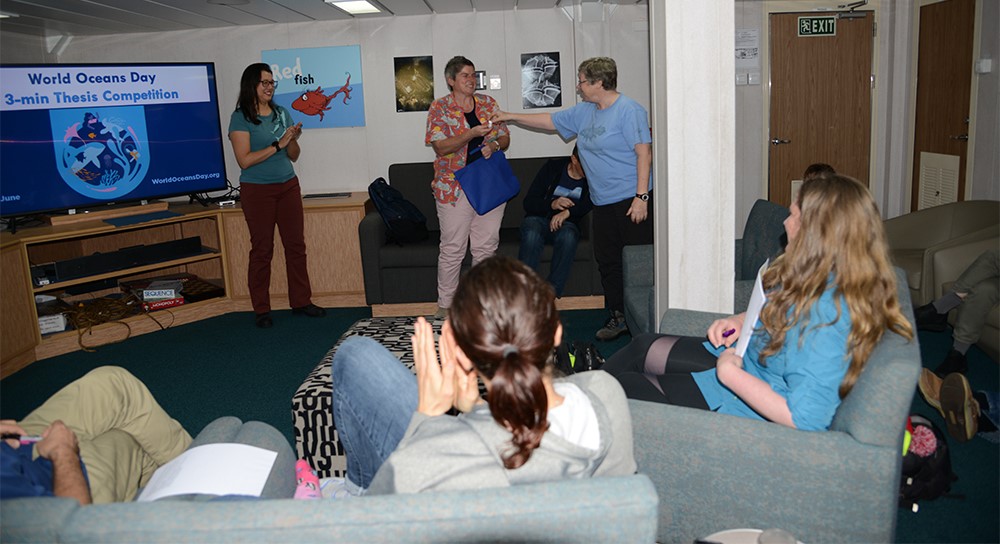 |
|
And the winner of the World Oceans Day “3-min Thesis Competition” is… Peta Vine (PhD student from University of Technology Sydney). Here Prof Lynnath Beckley, at right presents Peta with a unique, thimble-sized, shrunken styrofoam cup that has been down to 5000 m on the CTD. At left, is Dr Jessica Benthuysen (AIMS), who expertly organised and staged the competition for the students. Photo: Micheline Jenner AM. |
Be sure to follow the daily posts of our Log from One Ten East at https://iioe-2.incois.gov.in and www.wamsi.org.au

